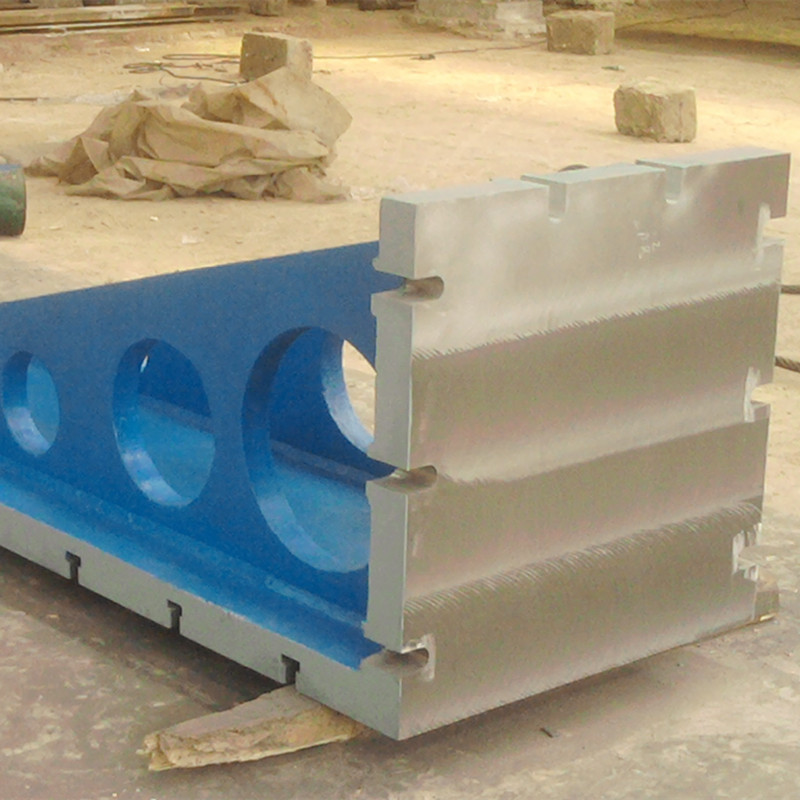نوامبر . 27, 2024 10:16 Back to list
Understanding Standard Thread Plug Gauges for Precision Measurement and Quality Control
Understanding Standard Thread Plug Gauges
Thread plug gauges are essential tools in manufacturing and engineering fields, especially where precision is crucial. These gauges are specifically designed to determine whether a threaded hole meets the standards set by industry specifications. Standard thread plug gauges ensure that the threaded features of components are made to the appropriate dimensions and tolerances for proper fit and function. This article delves into the purpose, types, calibration, and significance of standard thread plug gauges.
Purpose of Thread Plug Gauges
The primary purpose of a thread plug gauge is to check the internal threads of a hole. By doing so, manufacturers can ensure that parts can be assembled properly, thereby avoiding mechanical failures, leaks, or other issues that might arise due to improper threading. The gauges serve as a reliable reference to evaluate both the size and pitch of the threads, ensuring they align with the design requirements.
There are two main types of thread plug gauges the Go gauge and the No-Go gauge. The Go gauge checks the minimum acceptable size, indicating that the thread is correctly formed. If the Go gauge fits, then the thread is considered acceptable for use. Conversely, the No-Go gauge checks the maximum acceptable size. If the No-Go gauge fits, the thread is deemed out of specification. Together, these gauges enable manufacturers to maintain the precision required in threaded components.
Types of Threads
Standard thread plug gauges come in various types to accommodate different thread forms, including - Unified National Thread (UN) Commonly used in the United States and Canada for general-purpose applications. - Metric Thread (M) Used widely across Europe and Asia, these are designated by the nominal diameter and pitch (e.g., M10x1.5). - British Standard Whitworth (BSW) Traditional British thread standard still prevalent in certain applications. - Pipe Threads Used for plumbing and gas applications, which often require specialized thread forms.
The choice of the appropriate thread type is crucial for the compatibility of parts, and plug gauges ensure that these standards are met during manufacturing.
standard thread plug gauge

Calibration and Maintenance
For thread plug gauges to function effectively, they must be accurately calibrated and regularly maintained. Calibration involves adjusting the gauge to ensure it measures accurately against established reference standards. This is typically done using specialized equipment in a controlled environment. Moreover, it's vital to keep gauges clean and free from contaminants since dirt and debris can affect their performance.
A rigorous maintenance schedule helps prolong the lifespan of the gauges and ensures consistent accuracy. This includes inspecting the gauges for wear and tear, particularly the threads themselves, as even minor damage can lead to incorrect measurements.
Significance in Manufacturing
The use of standard thread plug gauges plays a critical role in maintaining quality control in manufacturing processes. They enable manufacturers to detect deviations from the desired specifications early in the production process. By identifying issues before components move onto subsequent manufacturing steps, companies can reduce waste, prevent costly reworks, and ensure that only quality products reach the market.
Moreover, as machinery continues to evolve and become more precise, the importance of thread plug gauges increases. In industries such as aerospace, automotive, and medical devices, where even slight deviations can have catastrophic consequences, these tools are indispensable in maintaining stringent quality standards.
Conclusion
In conclusion, standard thread plug gauges are vital tools for ensuring the integrity of threaded components across various industries. By effectively measuring and verifying thread dimensions, these gauges not only help in maintaining strict quality control but also foster efficiency and reliability in manufacturing processes. As technology and engineering continue to advance, the importance of precision instruments such as thread plug gauges will only increase, signifying their indispensable role in the pursuit of quality in manufacturing. Whether in high-speed automated production lines or intricate assembly tasks, standard thread plug gauges will remain a cornerstone of quality assurance.
-
thread-plug-gauge-our-promise-of-measurement-excellenceNewsAug.22,2025
-
gauge-pin-class-reflecting-quality-legacyNewsAug.22,2025
-
check-valve-types-for-high-rise-buildingsNewsAug.22,2025
-
water-control-valve-for-irrigation-systemsNewsAug.22,2025
-
gate-valve-with-soft-seal-technologyNewsAug.22,2025
-
y-type-strainer-for-oil-and-gas-applicationsNewsAug.22,2025
Related PRODUCTS









